Facilities
ETEC
ETEC is home to the Department of Environmental & Sustainable Engineering. The facility is a new academic and research building that brings academia and innovation together under one roof. Equipped with modern interactive classrooms and state-of-the-art teaching laboratories and equipment, ETEC is a shining example of how the University is incorporating innovative, sustainable technologies into its construction projects while strengthening its academic offerings for students.

Labs
The Department of Environmental & Sustainable Engineering labs are currently located in the Biology and ETEC Buildings.
Teaching Lab
The Environmental Teaching Laboratory is a flexible facility designed for bench-scale experiments and analysis of environmental samples and processes. The facility is host to both upper-level undergraduates and graduate students.
ESE Core Lab
The Department of Environmental & Sustainable Engineering (ESE) Core Lab at the University at Albany is a state-of-the-art facility for analyzing various environmental samples.
The ESE Core Lab houses several advanced instruments that enable comprehensive analysis of organic and inorganic chemicals — helping researchers understand and address environmental challenges.
Both on-campus and external researchers may submit jobs to be run on our equipment. Learn more about the ESE Core Lab.
Equipment
In addition to instruments in the ESE Core Lab, ESE faculty members own the following list of equipment.
Air Quality Equipment in Dr. Aynul Bari’s laboratory
Dr. Huang's Equipment
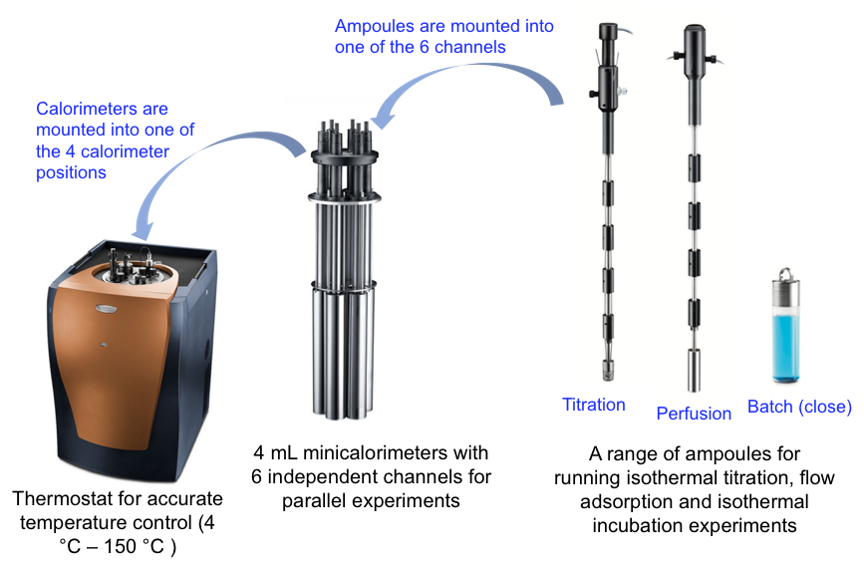
Instrument and available accessories
A TAM IV Microcalorimeter system (TA Instruments) for reaction heat measurement
Working principles
All physical, chemical and biological processes release or absorb heat, and microcalorimeter is a technique developed to directly measure the heat signal. The heat signal can be used to derive quantitative thermodynamics and kinetics data of the process being studied.
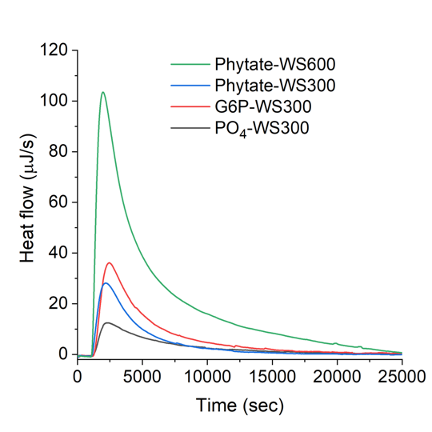
Graph 1
Real-time heat signal for adsorption of different phosphorus compounds to solid sorbents using a flow through ampoules.
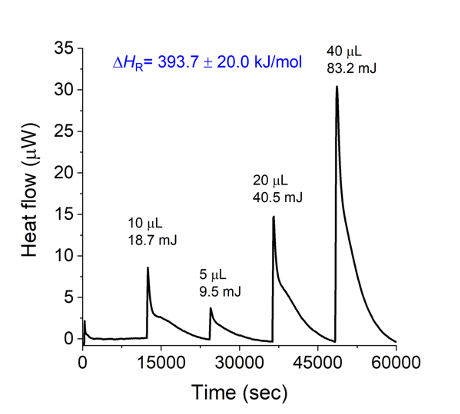
Graph 2
Enthalpy of enzymatic oxidation reaction measured by isothermal titration of different volumes of the substrate into an enzyme solution, using isothermal titration ampoule.
Capability with accessories currently installed
Sensitivity: heat signal as low as 0.5 W (J/sec) can be measured.
Experiment types: isothermal titration (liquid to liquid or liquid to solid suspension), perfusion (gas or liquid flow through solids), batch experiment (isothermal or temperature scanning);
Sample type and volume: ampoules can accommodate sample volume up to 4 mL, solids at sub-micron sizes can be used in a titration experiment, and solids sized > 0.4 m are required for perfusion experiment, the batch ampoule is highly accommodating to different types of samples;
Reaction condition: temperature between 15 to 90 °C, aqueous solutions (organic solvent may also be used), isothermal or temperature scanning (<1°C/hr).
Dr. Kim's Lab Equipment
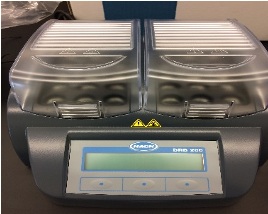
Digital Digestion Reactor
Model Number: DRB200
Company: Hach
Description: The reactor is designed for programmable digestion to measure organic matter concentration in samples.
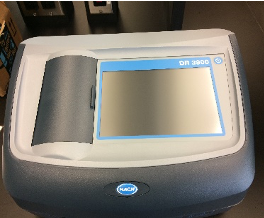
Laboratory VIS spectrophotometer with RFID tech
Model Number: DR3900
Company: Hach
Description: A benchtop visible spectrum (320 - 1100 nm), split beam spectrophotometer with over 220 pre-programmed methods optimized for laboratory water analysis (parameters like Ammonium, COD, Phosphate, Nitrate and many others)
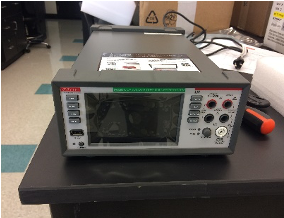
Multimeter Data Acquisition System
Model Number: DAQ6510
Company: Keithley Instruments
Description: DAQ6510 is a precision data acquisition/data logging system with the measurements of a 6.5 digit DMM plus 40 channels of instrument grade switching.
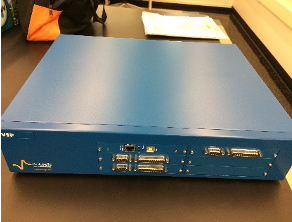
Potentiostat-Galvanostats
Model Number: VSP (5 slots)
Company: BioLogic USA
Description: For electrochemical analyses (CV, LSV, CA, CP, EIS, and others). EIS measurement from 10 µHz to 1 MHz, Current ranging from 10 μA up to 1 A.
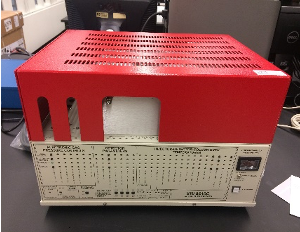
Gas Chromatograph
Model Number: 8610C
Company: SRI Instrument
Description: To analyze gas productions (hydrogen, oxygen, and methane) in samples.
Dr. Liang's Lab Equipment
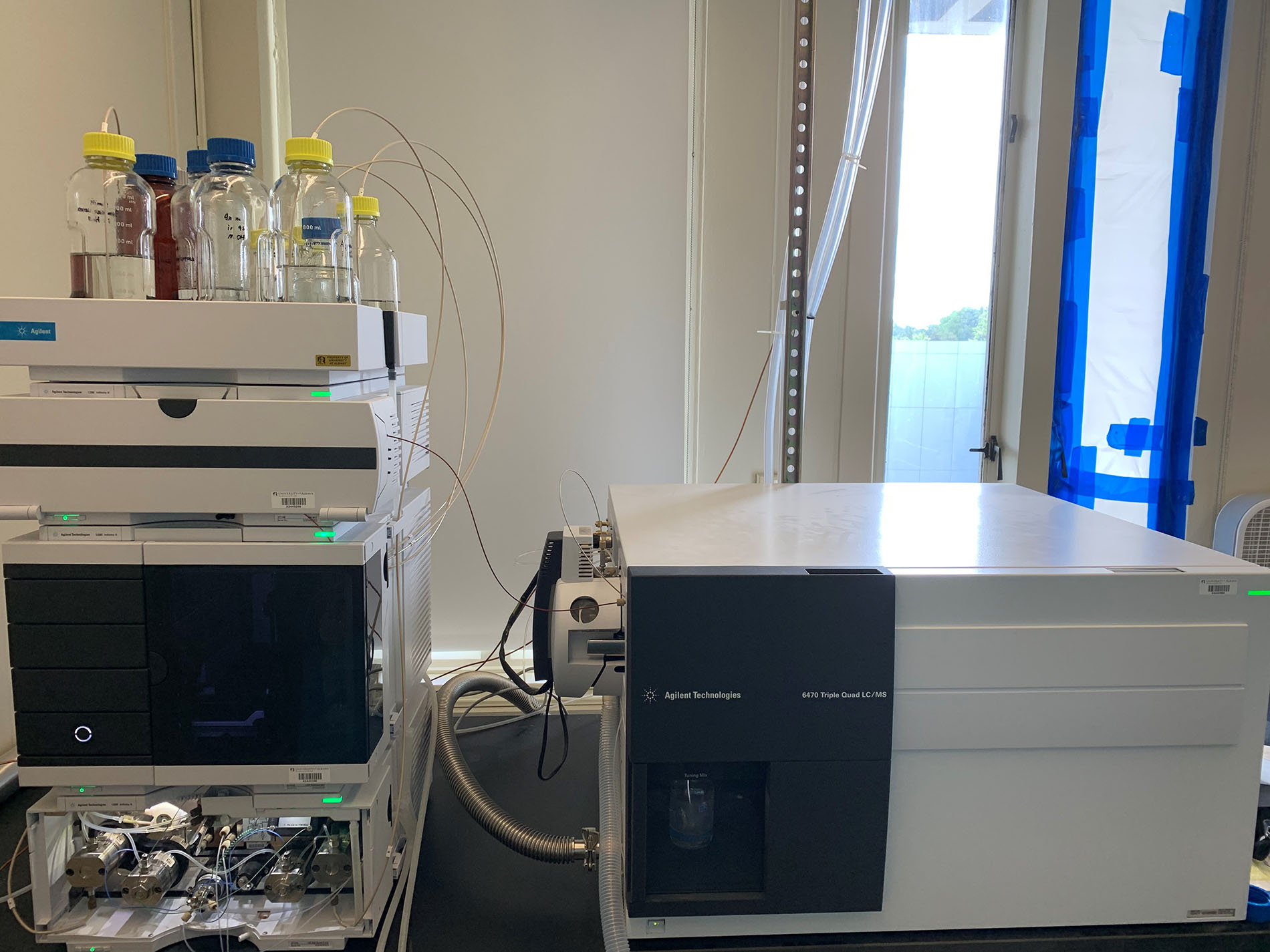
Agilent 1290 UPLC 6470 Triple Quadrupole LC/MS
The instrument is dedicated for analyzing per- and polyfluoroalkyl substances (PFAS) and other emerging organic contaminants. Detection limits for PFAS are in the low end of ng/L (ppt) ranges. We are experienced in analyzing per- and polyfluoroalkyl acids (PFAAs), PFAA precursors, and PFAS alternatives following EPA method 537.1, 533, 1633, and other up-to-date protocols. For details, please contact Dr. Yanna Liang at [email protected].


